Rhinoplasty in Israel
Search and Compare the Best Clinics and Doctors at the Lowest Prices for Rhinoplasty in Israel
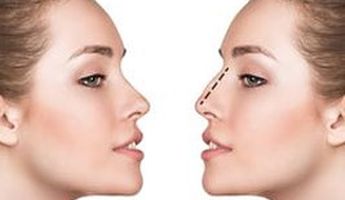
Find the best clinics for Rhinoplasty in Israel
With Medijump you can browse 13 facilities offering Rhinoplasty procedures in Israel. The cheapest price available is $2,918 in Ramat Gan. And for the cheapest price globally, prices start from $101 in Poland.
Rhinoplasty in Ramat Gan
Price: $ 2,918
Rhinoplasty in Tel Aviv
Price: $ 8,586
Poland offers the best prices Worldwide
Price: $ 101
From 24 verified reviews
sigalit kochmeister, 11 February 2020
Very professional, kind and attentiveLovely clinic and wonderful staffHighly recommend
From 109 verified reviews
Y N, 22 September 2020
Excellent medical center, with friendly staff and highly qualified doctors.Thank you for your work.My operation was successful
From 126 verified reviews
Y Jilani, 19 September 2020
A huge academic hospital serving the greater jerusalem area, world class health professionals and good location and amenities!
From 122 verified reviews
fadi hreaz, 27 August 2020
Hospital gives reasonable treatment but poor sorting
From 106 verified reviews
Abed Faroge, 22 September 2020
בית חולים וצוות ברמה שירותית ואיכותית מאד גבוהה . צוות מקצועי אדיב וקשוב לצרכי המטופלים . רשמת השירות וההיענות של צוות בית החולים משרה אווירת ביטחון שאכן המטופל בידיים טובות .
From 13 verified reviews
charles avital, 16 January 2020
Very beautiful and perfect
Tel Aviv Sourasky Medical Center (Ichilov Medical Center), located in Arison New Hospitalization Building, Tel Aviv, Israel offers patients Rhinoplasty procedures among its total of 428 available procedures, across 29 different specialties. Currently, there's no pricing information for Rhinoplasty procedures at Tel Aviv Sourasky Medical Center (Ichilov Medical Center), as all prices are available on request only, whilst the national average price is approximately $7,318. There are many specialists available at the Clinic, with 13 in total, and they are accredited by JCI Accredited
Tel Aviv medical Center T.A.M.C. LTD, located in Arison New Hospitalization Building, Tel Aviv, Israel offers patients Rhinoplasty procedures among its total of 14 available procedures, across 7 different specialties. Currently, there's no pricing information for Rhinoplasty procedures at Tel Aviv medical Center T.A.M.C. LTD, as all prices are available on request only, whilst the national average price is approximately $7,318. There are many specialists available at the Hospital, with 11 in total, and they are not accredited by any recognized accreditations institutes
IIMedCare, located in Arison New Hospitalization Building, Tel Aviv, Israel offers patients Rhinoplasty procedures among its total of 19 available procedures, across 3 different specialties. Currently, there's no pricing information for Rhinoplasty procedures at IIMedCare, as all prices are available on request only, whilst the national average price is approximately $7,318. All procedures and treatments are undertaken by just a small team of specialists, with 3 in total at the Hospital, and they are not accredited by any recognized accreditations institutes
InterMedExpert, located in Arison New Hospitalization Building, Tel Aviv, Israel offers patients Rhinoplasty procedures among its total of 41 available procedures, across 15 different specialties. Currently, there's no pricing information for Rhinoplasty procedures at InterMedExpert, as all prices are available on request only, whilst the national average price is approximately $7,318. All procedures and treatments are undertaken by the lead specialist at the Hospital, and they are not accredited by any recognized accreditations institutes
IsraMedica- Medical Treatments in Israel, located in Shmuel Bait St, Jerusalem, Israel offers patients Rhinoplasty procedures among its total of 26 available procedures, across 11 different specialties. Currently, there's no pricing information for Rhinoplasty procedures at IsraMedica- Medical Treatments in Israel, as all prices are available on request only, whilst the national average price is approximately $7,318. All procedures and treatments are undertaken by the lead specialist at the Hospital, and they have multiple recognized accreditations, including: ISO Certification - International Organization for StandardizationThe Joint Commission Accreditation ProgramAccreditation Programme of Health OrganizationISPS - The Israel Society of Plastic Surgeons
Assuta Medical Center, located in Arison New Hospitalization Building, Tel Aviv, Israel offers patients Rhinoplasty procedures among its total of 15 available procedures, across 6 different specialties. Currently, there's no pricing information for Rhinoplasty procedures at Assuta Medical Center, as all prices are available on request only, whilst the national average price is approximately $7,318. All procedures and treatments are undertaken by just a small team of specialists, with 3 in total at the Hospital, and they are not accredited by any recognized accreditations institutes
Health Tour, located in Ramat Yam St, Herzliya, Israel offers patients Rhinoplasty procedures among its total of 105 available procedures, across 21 different specialties. Currently, there's no pricing information for Rhinoplasty procedures at Health Tour, as all prices are available on request only, whilst the national average price is approximately $7,318. All procedures and treatments are undertaken by the lead specialist at the Hospital, and they have multiple recognized accreditations, including: Accreditation Programme of Health OrganizationISPS - The Israel Society of Plastic Surgeons
- Home
- Israel
Compare Before & After Photos of _procedure_photos.phpRhinoplasty
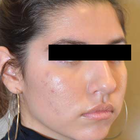
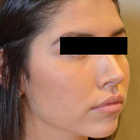
Half-side view
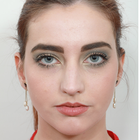
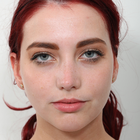
Front view
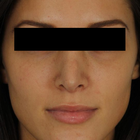
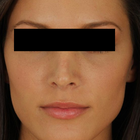
Front view
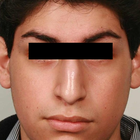
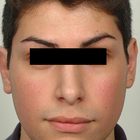
Front view
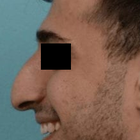
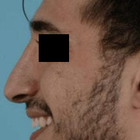
Full-side view
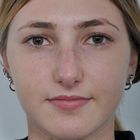
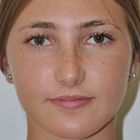
Front view
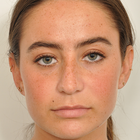
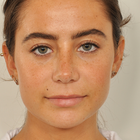
Front view
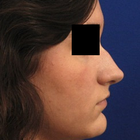
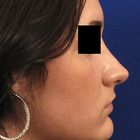
Full-side view
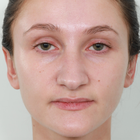
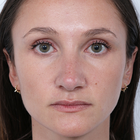
Front view
WHY US?
At Medijump, we're making medical easy. You can search, compare, discuss, and book your medical all in one place. We open the door to the best medical providers worldwide, saving you time and energy along the way, and it's all for FREE, no hidden fees, and no price markups guaranteed. So what are you waiting for?

Free

Best Price

Widest Selection

Risk-Free
What you need to know about Rhinoplasty in Israel

Rhinoplasty, commonly known as the “nose job,” is plastic surgery to change the shape of the nose and to improve its function. This procedure can be performed for medical and cosmetic reasons. Those with breathing problems caused by a birth defect, deviated septum, sinusitis, or an injury to the nose, as well as those who are not happy with the appearance of their nose, can undergo rhinoplasty.
Rhinoplasty has a number of benefits. However, the most compelling reason for patients to have this surgery is to improve the appearance of their noses, which can boost their self-esteem significantly. Besides altering the form and size of your nose, the procedure can also strengthen the bridge, narrow the nostrils, and reshape the tip.
While anyone can undergo rhinoplasty, teenagers are advised to wait until their nose has reached its adult size.
What does a Rhinoplasty Procedure Involve?
During rhinoplasty, you will be given local or general anesthesia to make sure that you are comfortable and you don't feel any pain. Your surgeon might perform the procedure inside your nose or through an incision at the base of your nose.
Changing the shape of your nasal bones or cartilage can be done in several ways, depending on how much needs to be added or removed, available materials, and your nose’s structure.
If your nose needs to be augmented because you want to increase its size, prosthetic implants or cartilage from your nasal septum or ear is used. Once your surgeon is done altering the shape of your nose and correcting any defect, they will place the nose’s skin and tissue back, then close the incisions with stitches.
How Long Should I Stay in Israel for a Rhinoplasty Procedure?
Depending on the complexity of the procedure and the type of anesthesia used, you may be able to leave the hospital on the same day or stay in the hospital for a day or two. The surgery itself takes around 1.5 to 3 hours to complete. Once you are discharged from the hospital, you should not leave Israel right away. Instead, plan to stay about 10 to 14 days for initial recovery and follow-up checkups. A week following the surgery, your surgeon will remove your stitches.
What's the Recovery Time for Rhinoplasty Procedures in Israel?
You generally need to wait at least 2 to 3 weeks until you can resume most of your normal activities. However, you should not perform any strenuous activities, such as intense exercise, for about 3 to 6 weeks. During the first few days after the surgery, you will experience some swelling around your eyes, but these will subside within 3 to 14 days. You will also have to wear a nasal splint for about a week following the surgery.
What sort of Aftercare is Required for Rhinoplasty Procedures in Israel?
Since you may experience some discomfort, your surgeon will give you painkillers to ease any pain and discomfort. Make sure to take the pain medication as prescribed. For a couple of weeks following the surgery, you should not blow your nose, as well as laughing or talking too much. You also need to avoid any clothes that need to be pulled over your head and glasses on your nose for a few weeks. Always make sure to cover your nose while going out in the sun during your recovery period.
It's important that you avoid bumping or hitting your nose, and keep your nose safe and protected from anything that could misalign the bones and undo the results. To help you recover smoothly and quickly, eat healthy and nutritious food.
What's the Success Rate of Rhinoplasty Procedures in Israel?
Rhinoplasty is considered one of the most complicated facial cosmetic surgeries. However, thanks to the advances in technology and surgeons’ extensive experience, the procedure has a very high success rate of between 85% and 90%.
Although rhinoplasty is generally safe, it does carry some potential risks of complications and side effects, including bleeding, infection, allergic reaction to the anesthesia, permanent numbness in your nose, difficulty breathing through the nose, an uneven-looking nose, discoloration, persisting pain, scarring, septal perforation, and a need for additional surgery.
Are there Alternatives to Rhinoplasty Procedures in Israel?
If you are unable to undergo rhinoplasty, you can opt for its minimally invasive or noninvasive alternatives, such as filler injections or Botox. Both filler injections and Botox are noninvasive and require only a very short visit with your doctor. It works by injecting the substance into your nose to change its shape. Many people choose these methods because it is not as painful as rhinoplasty, requires little to no downtime, and no incision or stitches are involved.
If you want to improve your breathing, you may be recommended to use nasal strips. The nasal strip is a type of bandage with adhesive-embedded splints or plastic ribs that is applied across the bridge of the nose and the sides of the nostrils. It can keep the airway open, making breathing easier.
Whilst the information presented here has been accurately sourced and verified by a medical professional for its accuracy, it is still advised to consult with your doctor before pursuing a medical treatment at one of the listed medical providers
No Time?
Tell us what you're looking for and we'll reachout to the top clinics all at once
Enquire Now

Popular Procedures in Israel
Prices Start From $404

Prices Start From $1,945

Prices Start From $192

Prices Start From $500

Recommended Medical Centers in Israel for Rhinoplasty

- Interpreter services
- Translation service
- Religious facilities
- Medical records transfer
- Medical travel insurance
- Health insurance coordination
- TV in the room
- Safe in the room
- Phone in the room
- Private rooms for patients available

- Interpreter services
- Translation service
- Religious facilities
- Medical records transfer
- Medical travel insurance
- Health insurance coordination
- TV in the room
- Safe in the room
- Phone in the room
- Private rooms for patients available

- Interpreter services
- Translation service
- Religious facilities
- Medical records transfer
- Medical travel insurance
- Health insurance coordination
- TV in the room
- Safe in the room
- Phone in the room
- Private rooms for patients available

- Interpreter services
- Translation service
- Religious facilities
- Medical records transfer
- Medical travel insurance
- Health insurance coordination
- TV in the room
- Safe in the room
- Phone in the room
- Private rooms for patients available

- Interpreter services
- Translation service
- Religious facilities
- Medical records transfer
- Medical travel insurance
- Health insurance coordination
- TV in the room
- Safe in the room
- Phone in the room
- Private rooms for patients available

- Interpreter services
- Translation service
- Religious facilities
- Medical records transfer
- Medical travel insurance
- Health insurance coordination
- TV in the room
- Safe in the room
- Phone in the room
- Private rooms for patients available

- Interpreter services
- Translation service
- Religious facilities
- Medical records transfer
- Medical travel insurance
- Health insurance coordination
- TV in the room
- Safe in the room
- Phone in the room
- Private rooms for patients available

- Interpreter services
- Translation service
- Religious facilities
- Medical records transfer
- Medical travel insurance
- Health insurance coordination
- TV in the room
- Safe in the room
- Phone in the room
- Private rooms for patients available

- Interpreter services
- Translation service
- Religious facilities
- Medical records transfer
- Medical travel insurance
- Health insurance coordination
- TV in the room
- Safe in the room
- Phone in the room
- Private rooms for patients available

- Interpreter services
- Translation service
- Religious facilities
- Medical records transfer
- Medical travel insurance
- Health insurance coordination
- TV in the room
- Safe in the room
- Phone in the room
- Private rooms for patients available
Rhinoplasty in and around Israel
About Israel
Israel celebrated 70 years of independence in 2018 - in what is a truly ancient land. The world’s only Jewish and democratic state is home to sites sacred to Judaism, Christianity, and Islam. While these holy places are truly unique attractions, there is more to Israel than religious heritage and complex politics. Jerusalem is the official capital and holy city to three world religions, previously mentioned, while Tel Aviv brims with beaches and bustles with urban vitality. Then there’s the Dead Sea and Masada, the stark, stunning Negev, and fertile Galilee. The number of museums and cultural institutions per relative area is larger in Israel than anywhere in the world.
Home to more than 30 JCI accredited facilities, medical tourists visit Israel for a variety of procedures, but particularly dental and tertiary care. Rhinoplasty procedures are also a popular choice.
Popular Parts of Israel
Israel is an alluring destination for those who want to appreciate its astonishing religious sites, stunning natural beauty, and remarkable historic relics.
- Tel Aviv is the economic and technological center of Israel, with a population of over 400,000; it is the most populous city in the country. Located on the Mediterranean coastline, the city offers sunny beaches for any sun-chaser. The city has impressive architecture and has a modern cosmopolitan landscape. Tel Aviv Museum of Art houses works by international artists. In addition, it has a nonstop nightlife with a huge party option to fit every taste.
- Haifa is the country’s third-largest city and it is one of Israel’s high-technology centers as well as a busy working port. The city may have an industrious image, but with a number of museums, gardens, and shrines, it is an amazing place to travel to. The Baha’i Gardens are possibly the most popular attraction as it is the final resting place of the prophet-herald of the Baha’i Faith. Tourists can have a bird’s eye view from the platform at the top or take a free Panorama Tour.
- Eilat is located at the southernmost tip of Israel and is the only Israeli city on the Red Sea. Families come to the city to have a good time on the beach and party-goers come for its all-night parties. The turquoise waters invite visitors to snorkel, scuba dive, or swim. It is recommended to stay in an Oasis at night to get a chance to stargaze under a clear desert night sky. During the day, visit the Eilat Mountains to have a beautiful view of an ancient desert.
- Tsfat or Safed is a quaint mountain-top city surrounded by pine forests. Located at an elevation of 900 meters, the city enjoys warm summers and cold winters. It is a popular summer holiday resort frequented by Israelis and foreign visitors. Here, tourists will find synagogues, art galleries, and unique crumbling stone houses.
- Jerusalem is one of the oldest cities in the world and three major Abrahamic religions (Judaism, Islam, and Christianity) considered it a holy city. Even though it has been destroyed and rebuilt over thousands of years, the city manages to endure its spiritual magnetism. It is overflowing with holy sites, diversity, and layers of history.
Weather and Climate in Israel
Israel is a year-round destination but the temperatures in the city vary widely. The coastal areas such as Tel Aviv and Haifa experiences a typical Mediterranean climate where the winters are rainy and the summers are hot. The area around Northern Negev has a semi-arid climate with hot summers and cool winters. The Southern Negev has a desert climate with extremely hot summers and mild winters. On the other hand, mountainous regions have pleasant summer and cold winters with a little snowfall.
Generally, the winter months from November to March are the coldest months in the country. When mountainous areas such as Jerusalem receives snowfall, the coastal areas experience heavy rainfall. Summer starts in June and ends in August and it is the hottest season in every part of the country, especially in the desert area where the heat can be overbearing. The seasons of spring and autumn have the best weather, with pleasant temperatures and fewer rainy days.
Getting Around in Israel
Ben Gurion Airport is the main gateway to Israel and it is the busiest airport in the country located 20 kilometers southeast of Tel Aviv and 45 kilometers northwest of Jerusalem. The airport is ranked among the five best airports in the Middle East. It serves both domestic and international flights to and from numerous major cities around the world. There is two main passenger terminal at this airport. Terminal 1 serves domestic flights and international budget airlines such as EasyJet and Vueling, while Terminal 3 serves international flights.
Since the distance between one city to another is relatively short, getting around Israel is easy. The quickest and most convenient way is by domestic flights. The tickets are not very expensive and deals are often available online. Sometimes a one-way ticket can cost as little as 89 NIS (25 USD). Buses are also convenient but can be slow during traffic jams. Buses connecting Jerusalem, Tel Aviv, and Haifa depart very frequently. A one-way ticket from Tel Aviv to Jerusalem is around 25 NIS (7 USD). Israel’s main bus company is the Egged Bus Company. Trains are also available and very comfortable. They are a lot faster than the bus but the cost can be higher.
Taxis are widely available and can be hailed directly from the streets. Although most taxis are metered, you can agree on a fixed rate and be aware that some drivers are known to overcharge tourists, so you should insist on using the meter and make sure that it is reset to the base fare after you get in. The base fare is normally around 12.30 NIS (3.5 USD). There is also a shared taxi van known as Sherut. It is a good option to travel between Tel Aviv and Jerusalem or Tel Aviv and Haifa.
Tourist Visas in Israel
All visitors must hold a passport valid for at least six months after the date of departure from Israel. Citizens of 99 countries including the European Union, Canada, Singapore, Russia, and the United States do not require a visa to enter the country for up to 3 months. Nationals not listed on the visa exemption agreement need to obtain a visa and should contact their nearest embassy of Israel. Citizens of 25 countries require a confirmation from the Israeli government before a tourist visa is issued.
Additional Information
- Local Currency: The currency is the New Israeli Shekel (NIS) and 1 USD will get you 3.28 NIS.
- Money & Payments: ATMs that accept international cards are widespread (mostly Visa and MasterCard), except at border crossings with Egypt and Jordan. Credit cards are widely accepted and tipping is common but normally not expected.
- Local Language: The official language is Hebrew and Arabic has a special status under Israeli law as a semi-official language. Russian is spoken by around 20% of the population. Most of the population can speak English fairly well as it is required in schools and universities.
- Local Culture and Religion: More than 70% of the population follows Judaism. There are small groups of Muslims, Christian, and Druze. Muslims are the largest minority group in the country.
- Public Holidays: The country celebrates major national holidays as well as Jewish holidays such as Independence Day, Jerusalem Day, and Hanukkah.
Popular Searches
- Plastic Surgery in Thailand
- Dental Implants in Thailand
- Hair Transplant in Thailand
- Breast Augmentation Thailand
- Gastric Sleeve in Thailand
- Gender Reassignment Surgery in Thailand
- Laser Hair Removal in Bangkok
- Botox in Bangkok
- Dermatology in Bangkok
- Breast Augmentation in Bangkok
- Coolsculpting in Bangkok
- Veneers in Turkey
- Hair Transplant in Turkey
- Rhinoplasty in Turkey
- Stem Cell Therapy in Mexico
- Rhinoplasty in Mexico
- Liposuction in Mexico
- Coolsculpting in Tijuana
- Rhinoplasty in Korea
- Scar Removal in Korea
- Gastric Sleeve in Turkey
- Bone Marrow Transplant in India
- Invisalign in Malaysia
- Plastic Surgery in the Dominican Republic
- Tummy Tuck in the Dominican Republic
- Plastic and Cosmetic Surgery in Poland
- Rhinoplasty in Poland
- Hair Implant in Poland
- Dental Implants in Poland
- IVF in Turkey










